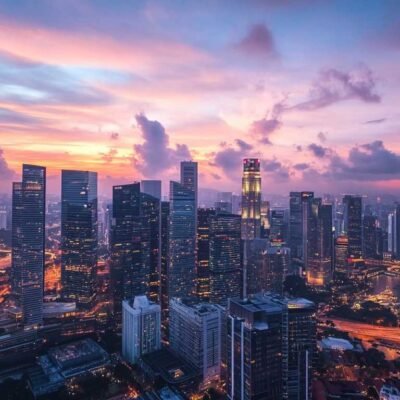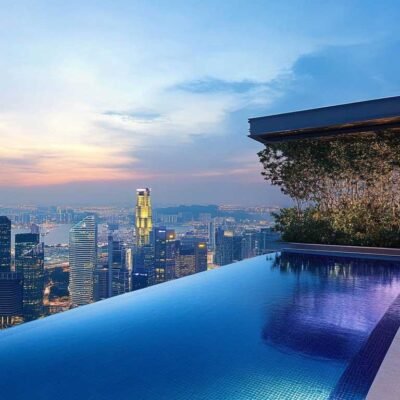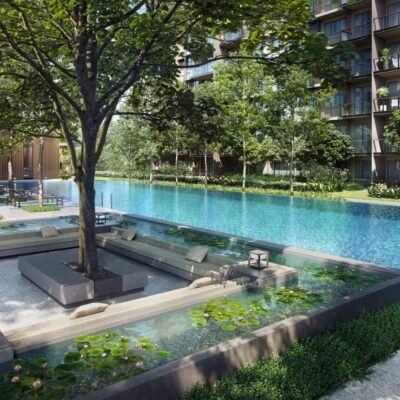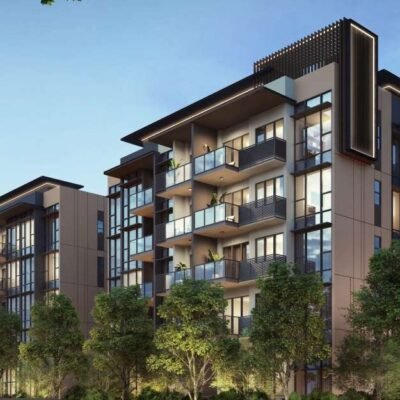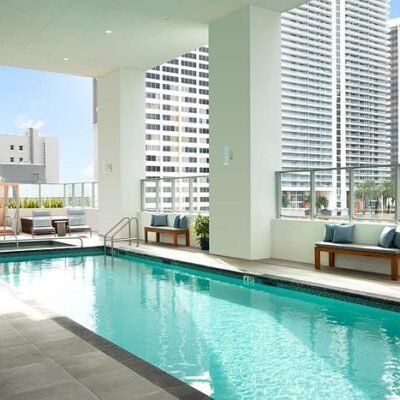Introduction
Singapore, despite its land constraints, is home to some of the most exquisite landed properties—terraces, semi-detached houses, bungalows, and good class bungalows (GCBs). These homes offer unmatched privacy and space, making them ideal for personalized and expansive interior design. Unlike compact apartments, landed homes allow homeowners to express their lifestyle and aesthetic values with more creative freedom.
This article explores the unique aspects of landed property interior design Singapore, focusing on modern trends, functional elegance, and the fine balance between opulence and practicality.
Understanding the Potential of Landed Property Design
Interior design for landed homes in Singapore is vastly different from condo or HDB design. The larger space, multiple storeys, private outdoor areas, and greater flexibility in structural changes offer broader creative opportunities.
Whether it’s reimagining a garden-facing living room, optimizing a multi-storey staircase, or building a home spa, the possibilities are extensive. However, good design in landed properties goes beyond aesthetics—it also considers ventilation, light flow, zoning, and long-term usability.
Key Design Principles for Landed Properties
Harmonizing Luxury with Livability
Landed homes often reflect a certain standard of luxury, but successful design goes beyond visual grandeur. True luxury lies in comfort and functionality. Thoughtful planning ensures that large spaces don’t feel hollow and intimate corners don’t feel cramped.
Integrating Indoor and Outdoor Spaces
One of the main advantages of landed homes is the access to outdoor areas—gardens, patios, courtyards, or rooftop terraces. Designers in Singapore increasingly blur the line between indoor and outdoor living, using large sliding doors, water features, vertical gardens, or semi-open dining areas to connect the spaces.
Maximizing Natural Light and Ventilation
Singapore’s tropical climate calls for smart architectural and interior strategies. High ceilings, cross ventilation layouts, and light wells are essential to reduce dependence on artificial cooling and lighting. These elements also make the home feel more spacious and serene.
Popular Interior Design Styles for Landed Homes in Singapore
Modern Contemporary
This is perhaps the most popular choice among landed homeowners. Clean lines, neutral palettes, and a combination of textures like glass, metal, and wood define the style. The look is sleek, polished, and sophisticated—perfect for both entertaining and unwinding.
Tropical Modern
Inspired by the Southeast Asian climate, tropical modern design emphasizes breezy spaces, natural materials, and a seamless flow between the home and nature. Features often include timber decking, lush indoor plants, ceiling fans, and bamboo or rattan furniture.
Minimalist Luxury
In larger spaces, minimalism takes on a new grandeur. Using a restrained color scheme, high-end materials (like marble, brushed metal, and hardwood), and statement lighting, minimalist luxury homes create impactful interiors without clutter.
Classic European
For those who prefer timeless elegance, European-inspired interiors—especially French, Victorian, or Neoclassical—bring ornate moldings, chandeliers, detailed wall panels, and plush textures. These designs work beautifully in bungalows and GCBs, where space can accommodate grandeur.
Room-by-Room Design Inspirations
Living Room: The Social Heart
In a landed home, the living room often opens up to a garden or courtyard. Use this to your advantage by choosing furniture that enhances the view and flow. Think large sectional sofas, centerpieces like a marble coffee table, and soft lighting that complements the natural surroundings.
Kitchen: Sleek Meets Functional
Many landed property owners in Singapore opt for open-concept kitchens that double as a dining and social hub. Install a large island for prep work and gathering, integrate modern appliances with clean cabinetry, and consider materials like quartz or sintered stone for durability and elegance.
Bedrooms: Personalized Comfort Zones
Every bedroom should reflect its occupant’s taste while maintaining a sense of calm and retreat. In larger master suites, consider walk-in wardrobes, reading nooks, and ensuite bathrooms with soaking tubs or rainfall showers. For children’s rooms, flexible furniture and plenty of storage encourage both play and organization.
Bathrooms: Spa-Inspired Serenity
Turn bathrooms into spa-like sanctuaries with mood lighting, underfloor heating, rain showers, and high-quality finishes like granite, stone, or matte tiles. Large mirrors and glass partitions amplify the sense of space and light.
Staircases: Sculptural Centerpieces
Multi-storey landed homes require staircases that are not just functional, but also beautiful. Floating staircases with glass balustrades, spiral designs, or wooden steps with built-in lighting can act as architectural highlights.
Smart Home Integration
Modern landed homes in Singapore are increasingly integrating smart technologies. Lighting systems, climate control, security systems, and even window blinds can now be controlled via smartphone apps or voice assistants. When planning an interior makeover, consider wiring for automation early in the renovation process for seamless integration.
Storage and Space Planning
Despite their size, landed properties can suffer from poor space planning without smart storage solutions. Built-in wardrobes, hidden compartments, and under-stair storage are just the start. Creating designated zones for activities—such as home gyms, libraries, or entertainment rooms—helps keep the rest of the home organized and clutter-free.
Sustainability and Eco-Conscious Design
As awareness around environmental responsibility grows, more homeowners are embracing sustainable interior design. Reclaimed wood, low-VOC paints, solar panels, rainwater harvesting, and energy-efficient lighting are increasingly becoming part of the landed home design vocabulary in Singapore.
Tips for a Successful Landed Property Renovation
- Plan Long-Term: Design with future needs in mind—consider aging family members, potential tenants, or lifestyle changes.
- Engage Professional Help: Large-scale renovations require expertise in spatial planning, structure, and material selection.
- Balance Boldness and Restraint: While the space allows for more dramatic features, restraint ensures timelessness.
- Prioritize Flow: Ensure rooms transition well into each other and that there’s consistency in design language.
- Don’t Forget the Exterior: Landscaping, façade materials, and gates contribute significantly to the overall look and feel of the home.
Conclusion
Designing a landed property in Singapore is an exciting journey—a chance to craft a home that’s luxurious, functional, and uniquely yours. From maximizing natural light to integrating smart features and embracing your design aesthetic, the possibilities are endless when space and privacy are on your side.
Landed property interior design is not just about opulence—it’s about building a lifestyle that reflects intention, comfort, and personal expression. With careful planning and thoughtful execution, your landed home can become a timeless sanctuary in the heart of the city.
